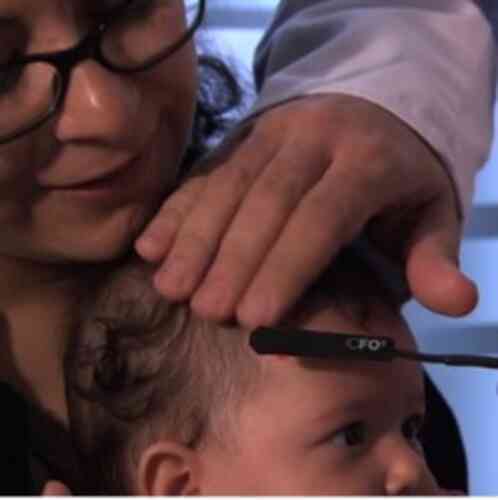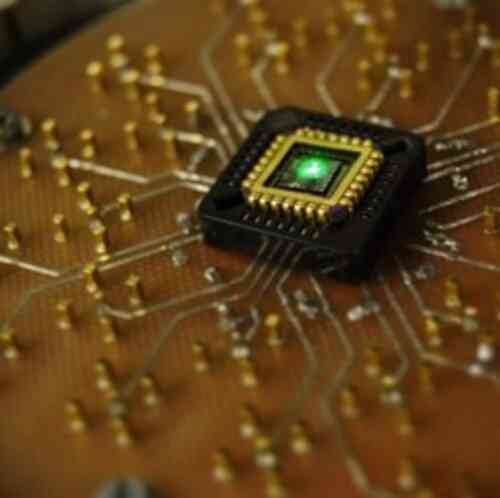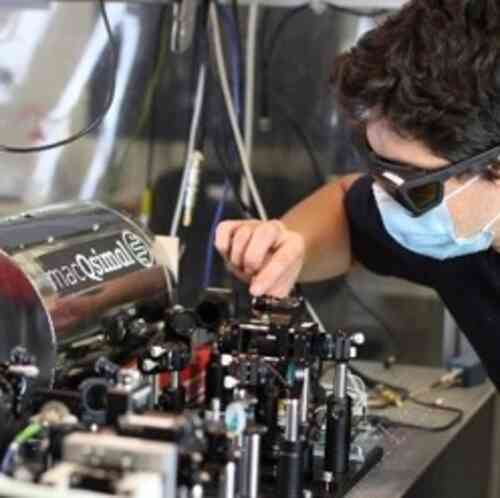ICFO decide game
Group 3 – Participant 6
Story cards
Read all the cards from this category, choose the one that looks more interesting to you and explain it to the rest of the group.
david díaz
Story Card 1
I'm an accountant and I'm very interested in science. That's why I often watch TV shows about technology. A few weeks ago, I saw Prof. Lluis Torner, director of ICFO, explaining that a smartphone uses things that have earned more than 20 Nobel photonic prizes, which make cameras, sensors, screens possible, as well as the technology used to manufacture microcircuits and many of their components, and to make the Internet possible. Who would have guessed that I had so much photonics in my pocket!
information and cYberseCurity
manuel moreno
Story Card 10
In the small town where I live, the City Council has installed photonic sensors: the collected data will help them take informed decisions in the future. For example, they installed a network of sensors to monitor air and water pollution with open data systems, so that citizens can be informed about the environmental health.
They are also working to connect the entire population to the internet network, installing optical fiber networks in all neighborhoods of the city. There are still many thing to do, but little by little we are transforming our town into a smart city!
information and cYberseCuriTY
ernesto espinosa
Story Card 14
When I was studying at the Academy of Fine Arts, I would have never thought of pointing a laser at a picture by Leonardo da Vinci like I am doing right now! Don’t worry, I don’t want to damage it: the laser allows me to clean it and to bring it back to its original splendor.
Lasers and photonic analysis techniques are very useful tools for restorers of works of art like me: they allow us to analyze different aspects of works of art (such as pigments, or the process followed by the artist) without jeopardizing the integrity of the pieces. My work mixes art and science: I’m sure Leonardo himself would love it!
photonics everywhere
info cards
Read all cards from this category, choose the two that look more interesting and explain them to the rest of the group.
ICFO and research
Info Card 1
ICFO is a research center of excellence with research lines that encompass diverse areas in which photonics plays a decisive role.
Theoretical and experimental scientists come together in our facility located in the Mediterranean Technology Park in the metropolitan area of Barcelona. They work in 80 state-of-the-art research laboratories with an emphasis on basic and applied themes relevant to medicine and biology, advanced imaging techniques, information technologies and a range of environmental sensors, tunable and ultra-fast lasers, quantum science, photovoltaics and the properties and applications of nano-materials such as graphene, among others.
photonics everywhere
non-invasive diagnosis and monitoring
Info Card 6
Did you know that photons can penetrate a few centimeters inside our body? In ICFO and Hemophotonics (an ICFO spin-off born in 2013) we use this property to get real-time information about what's going on under our skin (oxygen concentration and blood flow) in a non-invasive way.
This can help medical professionals detect and monitor neurological diseases, as well as improve the diagnosis of certain diseases, such as thyroid cancer. This technology also has applications in the fields of neuroscience, oncology, anesthesiology, diabetes and sports medicine.
Photo: Non-invasive sensor for the early detection of neurological pathologies in premature babies
health
graphene, a material with a great future
Info Card 11
Graphene is the first 2D material to be manufactured in the world. Despite being only one atom thick, graphene is stable and surprisingly strong. Its physical properties make of it an excellent conductor of heat and electricity, as well as being flexible, extensible and transparent. All these characteristics make graphene a very interesting material for the development of new technologies.
Institutions are aware of the potential of this material and have created the Graphene Flagship (at the European level) and GraphCAT (at the local level) to accelerate research on this material and bring its benefits to society. ICFO employs some of the world's leading experts in the field of graphene, participating in many of the projects of these two networks.
Photo: Graphene-based broadband camera designed by an ICFO team
photonics everywhere
improving our perception of the world
Info Card 24
The small changes that light undergoes when crossing different materials can help us measure with high accuracy many characteristics of the world around us, such as distance and temperature.
At ICFO we work to obtain very resistant sensors to measure temperature and electric fields in extreme conditions, such as a fire.
We also investigate how to build ultra-sensitive sensors thanks to the properties of quantum physics, such as a scale that can detect the presence of just one atom with carbon nanotubes or cold atoms that could measure the small magnetic fields generated by our brain.
Photo: Prototype of an ultrasensitive quantum magnetic field sensor.
information and cybersecurity
thinking cards
Read all the cards from this category, choose the one that looks more interesting to you and explain it to the rest of the group.
global science
Thinking Card 14
Science is an international activity: the vast majority of scientific discoveries are made by multinational teams and result from collaborations between institutes and companies in different countries.
People in the world of science often move to expand their experience, so it is very common to find people from different countries in a research center. The cultural mix creates an open and tolerant environment that helps the creation of new and original ideas that allow research advancement.
So does it make sense to associate an important scientific discovery with a country, as we can often read in the news?
teamwork
Thinking Card 17
ICFO scientists work closely with each other and often with colleagues from other institutes around the world and from other disciplines. Many scientific advances are the result of teamwork.
Still, one often reads stories of quasi-heroic characters who apparently alone changed the scientific field in which they worked. Also the most prestigious science awards, the Nobel Prizes, are awarded to a maximum of 3 people, who often have not even worked together, even if behind many revolutionary ideas there is a team of researchers. Should we value more the role of teamwork in science and recognize more explicitly that results often come from a collective effort?
DECISIon
The time and resources available to solve important problems affecting society are limited. Imagine being part of the commission that has to decide how to invest the money for photonics research at European level for the coming years: knowing that photonics benefits society in many different ways, how would you distribute funds among the different research fields in photonics?
This is not an individual decision: each group must come to a unanimous conclusion by discussing correctly and rationally based on the facts that you have learned so far. There is no right or wrong answer. Like many things in life, it depends on the point of view you assume, the priorities you set, ...
light for health
Option 1
The pandemic that arose in 2020 taught us that public health is an important sector that affects many more aspects of society. A tiny virus can affect the lives of millions of people in all its aspects, not only health, but also the economy, industrial structure, labor market ...
That’s why it’s important to focus most of our efforts on research projects that can improve and care for people’s health.
light for information and cybersecurity
Option 2
We live in the information age. More and more companies and institutions are collecting and analyzing large amounts of data to improve industrial processes and services for the population. In addition, digital technologies are essential to communicate with each other, whether for work or fun. If information systems fail, strategic structures such as energy networks, traffic control, hospitals, governments, etc. fail, too. Thus, ensuring data security for quick and massive data transfer is of fundamental importance for a digitized society like ours.
That is why it is important to focus most of our efforts on research projects that can improve data collection, analysis, transmission and security.
light for energy and the environment
Option 3
We are in the middle of a climate emergency: to be able to solve it we need new environmental policies and the commitment of society as a whole. Science and technology can accelerate the change of paradigm that we need to save the planet with discoveries and innovative technologies. If we do nothing now, the Earth will be uninhabitable and unsustainable, but there’s still time.
That’s why it’s important to focus most of our efforts on research projects that can help us take care of our planet.
photonics everywhere
Option 4
Photonics is everywhere and has a positive impact in many different aspects of our lives. Sometimes, the same technology (such as the laser) can improve health, information and care for the environment at the same time. There are many global issues and it is difficult to set a priority, especially because they are interconnected.
That’s why it’s important not to focus our efforts on a single field of application: it’s better to diversify our efforts to have more chances of success.













